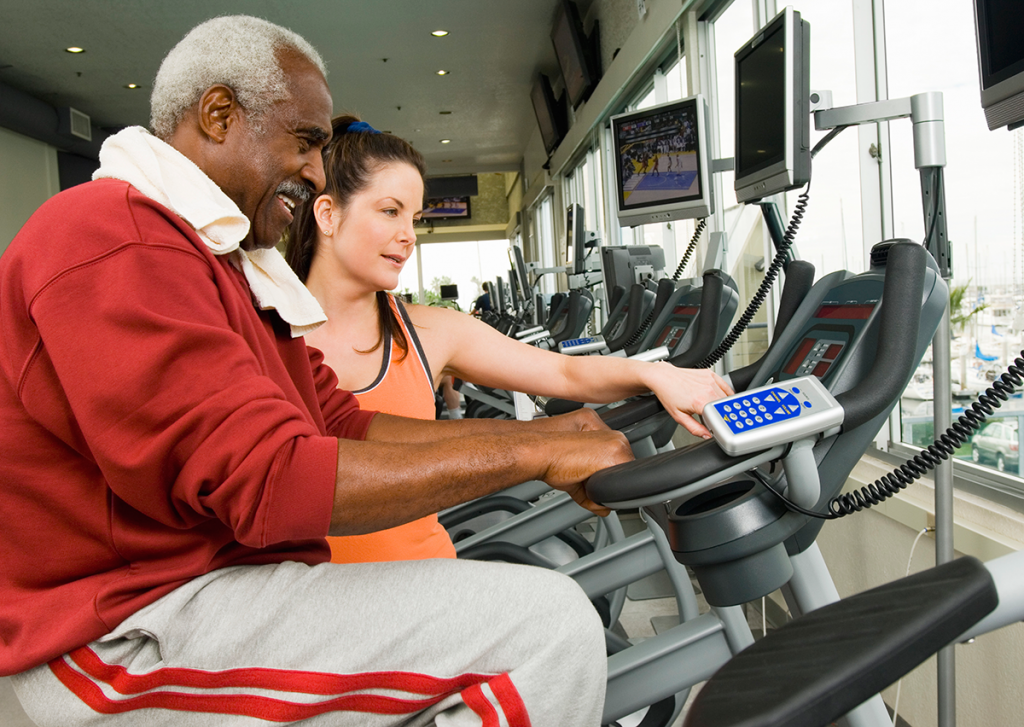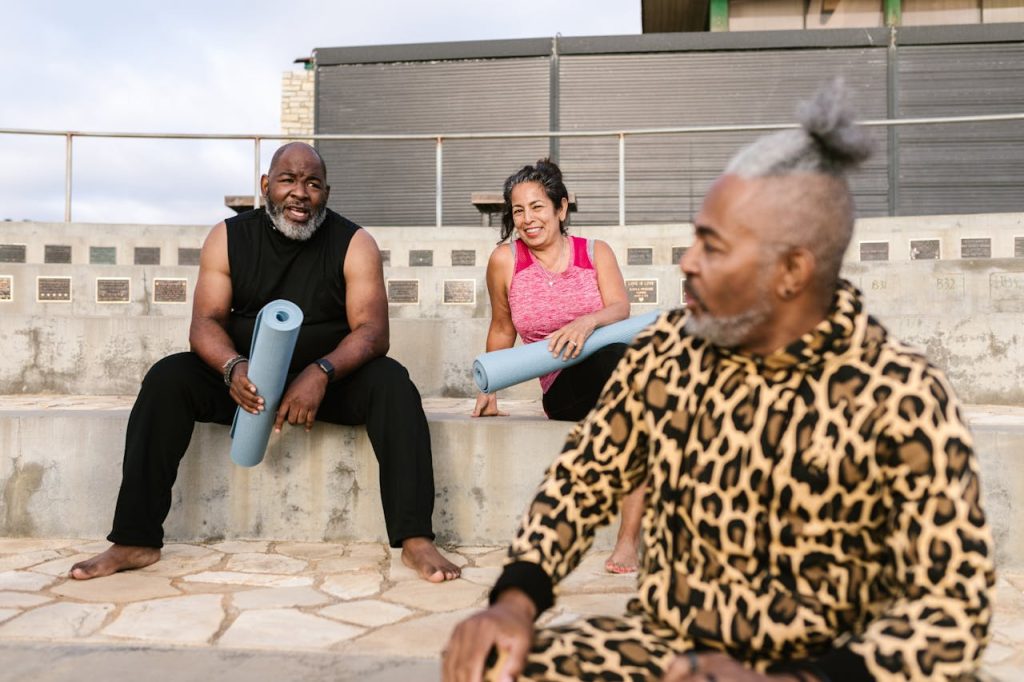Are you one of the 50% of people in the United States that suffers from chronic pain due to an illness or injury? Or are you the 1 in 4 adults with at least one form of arthritis or experience inflammation due to an autoimmune disease? Maybe you are a part of the 45% of people who have been diagnosed with type 2 Diabetes or the 12% that have at least 5 chronic illnesses?
According to the Center for Disease Control, an increasing proportion of Americans are dealing with multiple chronic illnesses and are living in chronic pain. However, the good news is that our medical and fitness industry has been making some headway when it comes to promoting and educating the public on the power of exercise to prevent and reduce the onset of chronic diseases. With the growing number of specializations and medical fitness certifications, the number of fitness professionals that are highly trained to work with this demographic is quickly growing due to the help of the most recent research that promotes exercise as way to prevent various diseases.
“You could really benefit from starting an exercise program.”

Do you have a doctor who understands the power of exercise? If so, that is a great start! Regular exercise such as: repetitive and exaggerated movements will activate and build muscle, which is valuable in restoring function, prolonging effects of diseases, and improving neural pathways, muscle memory & Neuroplasticity!
Exercise has been proven to help reduce pain, decrease the dependency on medication, and prevent diseases such as:
- Heart Disease
- Diabetes/Obesity
- Metabolic Syndrome
- Chronic Obstructive Pulmonary Disease
- Stroke
- Some Cancers
The benefits are seemingly endless, however, what about the people in the United States who lack the knowledge, time, money, or opportunity to implement and execute a fitness and wellness routine? What if YOU are a part of the active aging African American community who faces significant disadvantages when it comes to health and fitness due to a combination of systemic, socioeconomic, and cultural factors?
What Do You Know About Cultural Disparities?
Historically, African Americans have had limited access to quality healthcare and fitness resources, which has led to a higher prevalence of chronic diseases such as hypertension, diabetes, and obesity. Additionally, socioeconomic barriers such as lower income and education levels often result in reduced access to healthy foods, safe exercise environments, and preventive healthcare services. These disparities are compounded by cultural factors, including mistrust of the healthcare system due to historical injustices and a lack of representation in health and fitness professionals, which can discourage engagement in health-promoting behaviors.
- Access to Healthcare and Fitness Resources: African Americans often have less access to quality healthcare and fitness facilities in neighborhoods where they reside. In addition, they have little to no access to parks, sidewalks, and in some cases, transportation.
- Socioeconomic Barriers: Lower income and, in certain instances, education levels limit access to healthy foods, safe exercise environments, and preventive care.
- Cultural Factors: Historical injustices and lack of representation in health and fitness professions contribute to mistrust and lower engagement. As a result, African Americans are disproportionately exposed to measurable physiological and psychological stress compared to those not of African American origin.
Some statistics are quite startling:
- African Americans are 1.7 times more likely to have diabetes compared to their white counterparts (American Diabetes Association).
- Only 23% of African American adults meet the federal physical activity guidelines, compared to 33% of white adults (CDC).
- African Americans have a 50% higher prevalence of hypertension than their white counterparts (American Heart Association).
- African Americans are more likely to die at an earlier age due to earlier prevalence of chronic conditions or diseases such as: diabetes, heart disease, cancer, stroke, asthma, HIV/AIDS. (CDC & The Office of Mental Health, part of the Department for Health and Human Services.
Addressing Disparities in Health and Fitness

Health and fitness coaches can play a crucial role in addressing these disparities by implementing culturally sensitive and accessible programs. Firstly, coaches can provide education on the importance of regular exercise and balanced nutrition, tailored to the specific needs and preferences of African American Active Agers. This can include offering workshops in community centers, churches, and other familiar settings, making it easier for individuals to participate. Secondly, coaches should advocate for and facilitate access to affordable fitness options, such as sliding scale gym memberships or community exercise programs. Ensuring that these programs are welcoming and inclusive can help reduce the intimidation or alienation that many African Americans may feel in traditional fitness environments.
- Culturally Sensitive Education: Tailored workshops and programs in familiar community settings.
- Affordable Fitness Options: Sliding scale memberships and community exercise programs.
- Inclusive and Welcoming Environments: Reducing feelings of intimidation or alienation in fitness settings.
- Provision of Resources: Having a database of resources to help clients with areas outside our scope of work/care/expertise.
Additionally, health and fitness coaches can foster partnerships with local healthcare providers to create a holistic approach to wellness that addresses both physical and medical needs. They can also serve as advocates for policy changes that improve access to health and fitness resources in underserved communities. By building trust and providing consistent support, coaches can empower African American Active Agers to take charge of their health and improve their overall quality of life. This multi-faceted approach not only addresses immediate fitness needs but also contributes to long-term health improvements and reduced disparities.
Nicole Gordon is a seasoned women’s fitness and health coach with over a decade of experience, specializes in empowering busy women to achieve holistic wellness. As a certified personal trainer, group exercise instructor, and integrative nutrition health coach, Nicole advocates for balanced relationships, meaningful movement, creativity, and spiritual well-being. Her coaching philosophy, centered on “staying in your lane” while striving for progress, helps clients attain improved mobility, flexibility, strength, and energy for a balanced life.
Christine M. Conti, BA, M.Ed, is an international fitness educator and presenter. She currently sits on the MedFit Education Advisory Board and has been nominated to be the 2020 MedFit Network Professional of the Year. She is currently writing the MedFit Network Arthritis Fitness Specialist Course and is the CEO and founder of ContiFit.com and Let’s FACE It Together™ Facial Fitness & Rehabilitation. Christine is also the co-host of Two Fit Crazies & A Microphone Podcast and the co-owner of TFC Podcast Production Co.

